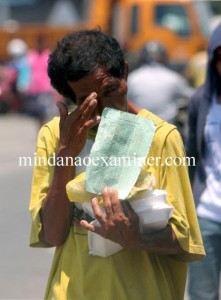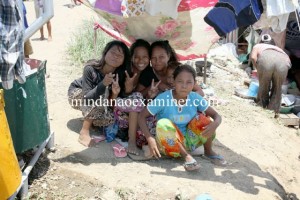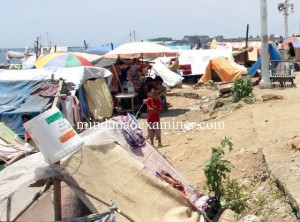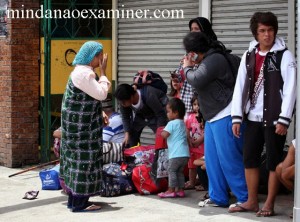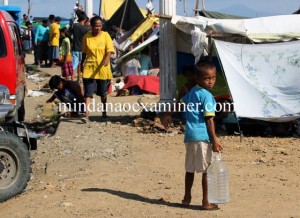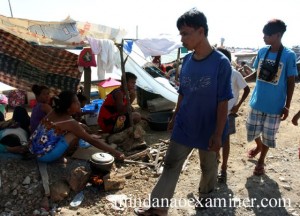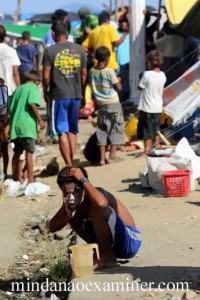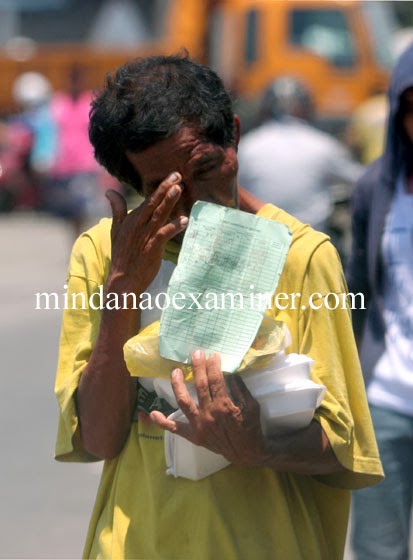
ZAMBOANGA CITY (Mindanao Examiner / Dec. 7, 2013) – All six governors in the Muslim autonomous region and Islamic religious leaders and various civil society groups are set to hold a summit with the local government officials on a plan to forcefully relocate thousands of Muslim villagers displaced by war in Zamboanga City in September.
The summit, set on Tuesday at the Garden Orchid Hotel in Zamboanga City, will discuss the plight of war refugees who are still suffering from their harrowing ordeal of three weeks of street battles between security forces and Moro National Liberation Front rebels who occupied villages in a failed effort to declare independence here.
Sulu Vice Governor Sakur Tan said Muslim villagers have sought the intervention of the governors in the autonomous region and Muslim religious leaders to stop the relocation of the refugees and to allow them to return to their original villages.
“These people are not criminals or thieves and should not be further displaced from their original habitats and villages. These people are crying and appealing to us to stop the relocation and all the governors of the Autonomous Region in Muslim Mindanao and Muslim religious leaders and civil society groups are sympathizing with these poor people who are still suffering up to now three months after the fighting in Zamboanga ended,” Tan told the regional newspaper Mindanao Examiner.
“The summit aims to find a solution to all these problems and dilemmas now facing the poor refugees in Zamboanga. We wanted to find a humanitarian solution and how we can resolve these many issues,” he added.
Just recently, tens of dozens of refugees marched to the streets and protested the relocation plan of Mayor Maria Isabelle Salazar, saying, it would be extremely difficult for them to rebuild their lives.
The villagers, many of them Tausug from Sulu province; Yakan, from Basilan; and indigenous Badjao tribe from Tawi-Tawi province – engaged in fishing and other traditional livelihoods – were being relocated to the far villages of Tulungatung and Taluksangay from their original habitat in the coastal villages of Rio Hondo and Mariki and other areas.
The provinces are all part of the autonomous region.
The Zamboanga government said it has built bunkhouses as temporary shelters to those affected by the violence, but it also warned that villagers who are not natives of Zamboanga would not be allowed to return to their former abode, unless they can provide certificates to show they are landowners.
Some of the displaced villagers accused the government of forcing them into relocating and others claimed social workers threatened to cut off relief aid should they reject the government offer to move to the hilly village of Tulungatung and Taluksangay.
Refugees carried placards as they marched in Zamboanga to denounce the government blackmail and to draw public support to what they claimed is their right to abode.
While others protested, many also praised the government for providing them a living quarter and were elated by their new house, saying it greatly helped them in rebuilding their family and future.
Those displaced by the fighting have been herded to a sports complex here, but the poor sanitation in the evacuation site makes it uninhabitable for many, and is also threatening the health of elderly, the women and the children.
The bunkhouses, built by the army, were funded by the Department of Social Welfare and Development. (Mindanao Examiner)

